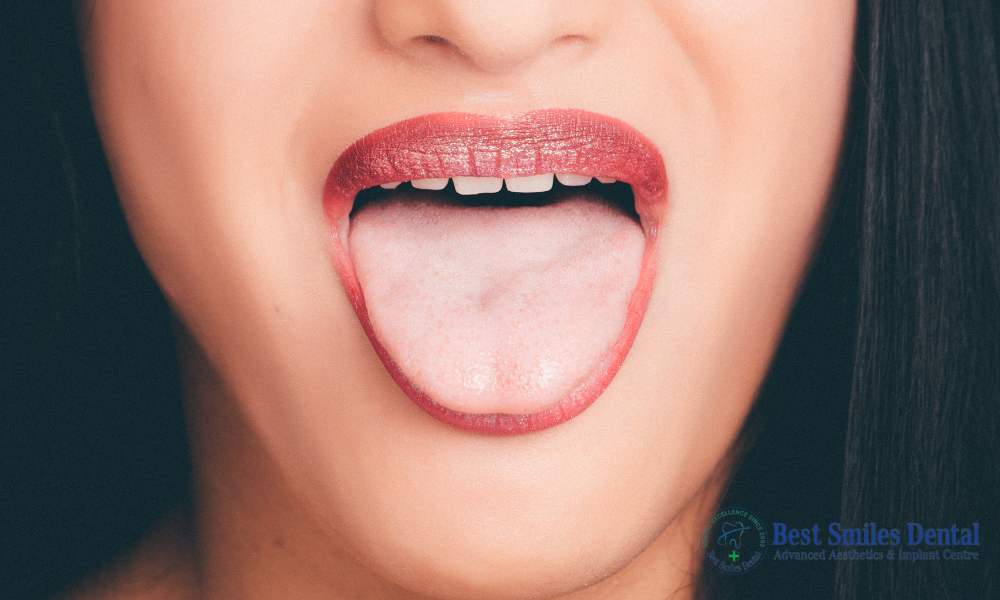Management of Dry Mouth (Xerostomia)
Management of Dry Mouth (Xerostomia)
Need Appointment ?
What is dry mouth (xerostomia)?
Dry mouth, also known as xerostomia, is a condition where the salivary glands in your mouth don’t produce enough saliva. This can lead to discomfort, difficulty in chewing, swallowing, or speaking, and increase the risk of dental issues like cavities and gum disease.
Dry mouth can occasionally happen if you’re dehydrated or feeling particularly anxious. But when your mouth is dry all the time (xerostomia), it could point to an underlying health condition. Certain medications can also cause it. Left untreated, xerostomia makes you more vulnerable to tooth decay, gum disease and other dental problems.
Book Appointment to find out which treatment might be best for you at Best Smiles Advanced Dental Clinic.

How common is dry mouth(xerostomia) ?
Dry mouth is common, affecting about 1 in 5 people. Your risk for dry mouth increases with your age.
What are the symptoms of dry mouth(xerostomia) ?
The symptom of xerostomia is a feeling of stickiness in your mouth due to a lack of saliva. When you speak, it might feel like your tongue sticks to the roof of your mouth.
Other possible dry mouth symptoms:
- Bad breath.
- Constant sore throat.
- Difficulty eating, speaking or swallowing.
- Dry feeling in your nose.
- Hoarseness.
- Increased thirst.
- Lip, tongue and mouth sores or pain.
- Taste disorders.
- Trouble wearing dentures.
More severe symptoms could include:
- Tooth decay.
- Dry eyes and skin.
- Skin rash.
- Joint pain.
What causes dry mouth(xerostomia) ?
Dry mouth (xerostomia) happens when something causes your salivary glands to produce less saliva.
Dry mouth causes include:
- Certain medications.
- Underlying health conditions.
- Radiation therapy, especially for head and neck cancer.
- Chemotherapy drugs.
- Dehydration.
- Mouth breathing.
What are complications of dry mouth(xerostomia)?
When you have chronic dry mouth, you’re more likely to develop:
- Cavities.
- Gum disease.
- Mouth sores.
- Cracked lips.
- Oral thrush.
What are the treatment options for dry mouth?
Management focuses on relieving symptoms and preventing complications, such as:
- Staying hydrated: Drink plenty of water throughout the day.
- Saliva substitutes: Use over-the-counter artificial saliva sprays, rinses, or gels.
- Medications: Some medications can stimulate saliva production (e.g., pilocarpine or cevimeline).
- Good oral hygiene: Brush with fluoride toothpaste and floss daily.
- Dietary changes: Avoid sugary, acidic, or spicy foods that can irritate the mouth.
- Humidifiers: Use a humidifier at night to keep air moist.

Pain-Free Dentistry
Comfortable, stress-free treatments every time.

Next-Gen Equipments
Precision care with advanced technology.

Expert Care Guaranteed
Trusted specialists for superior oral health.
Frequently Asked Questions
Discover everything you need to know about professional tooth cleaning and polishing. Learn how it removes plaque, enhances your smile, and promotes better oral health.
Dry mouth, or xerostomia, is a condition where your mouth doesn't produce enough saliva, causing discomfort and potential oral health issues.
Q2: What causes dry mouth?
Common causes include:
- Dehydration
- Certain medications (e.g., antihistamines, antidepressants)
- Medical conditions (e.g., diabetes, Sjögren’s syndrome)
- Aging
- Smoking or alcohol use
While not usually serious, untreated dry mouth can lead to tooth decay, gum disease, or infections like oral thrush.
Your dentist or doctor may evaluate your medical history, examine your mouth, and recommend tests to determine the cause.
In some cases, dry mouth is reversible if the underlying cause is addressed, such as changing medications or treating dehydration. However, for chronic conditions, management focuses on symptom relief and preventing complications.

